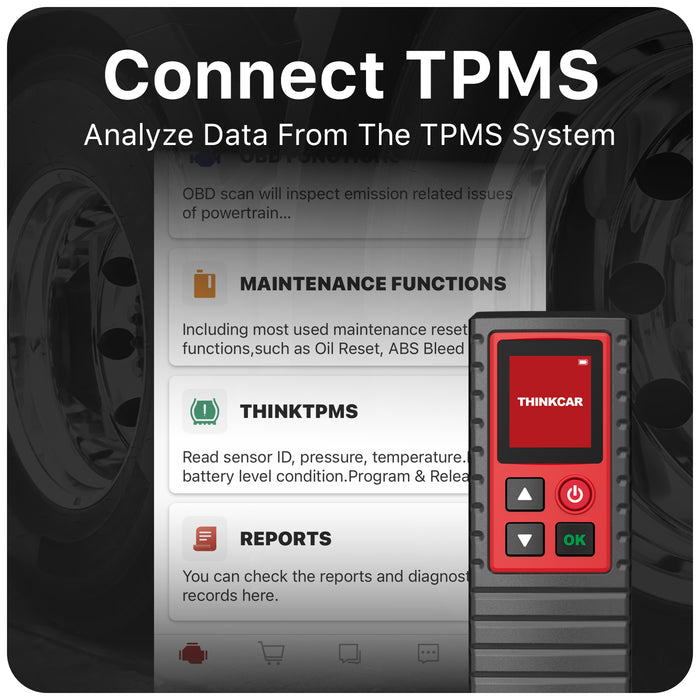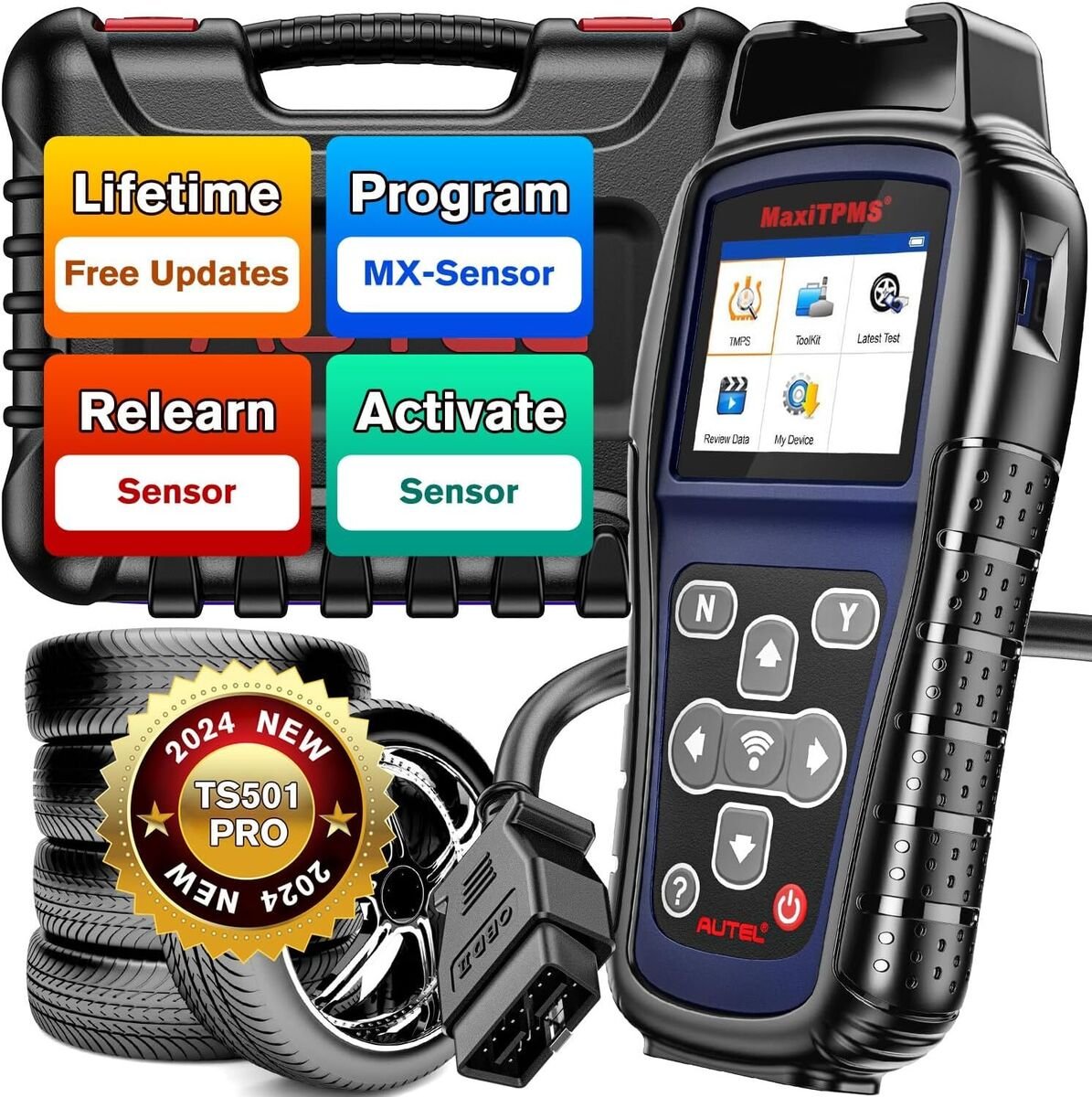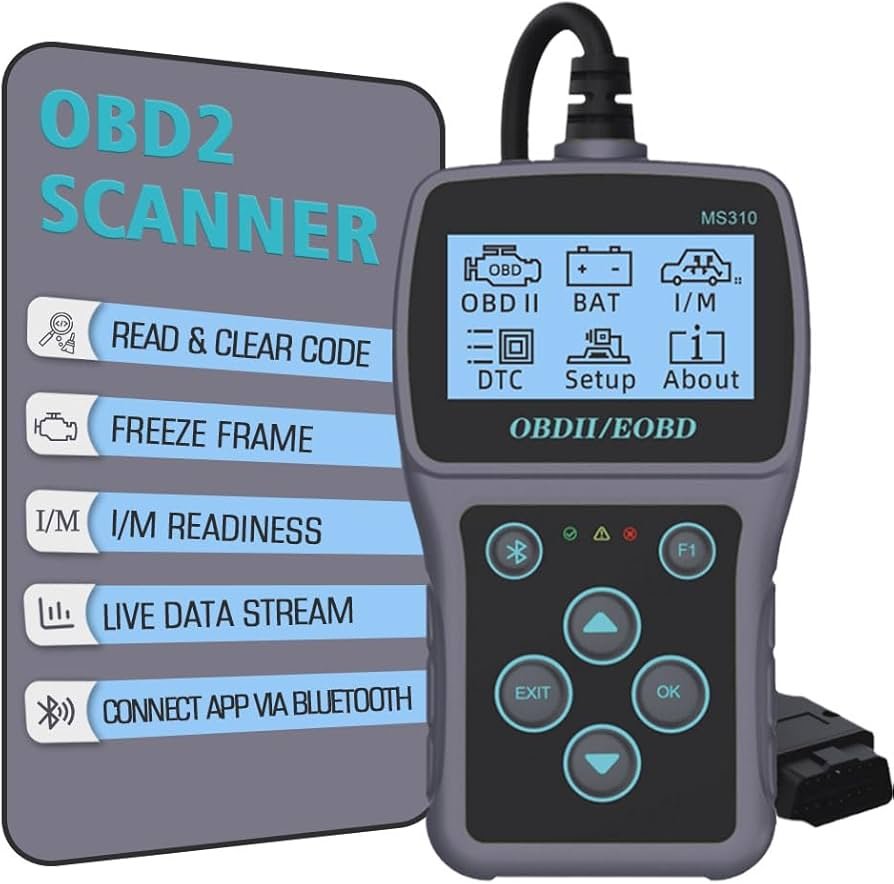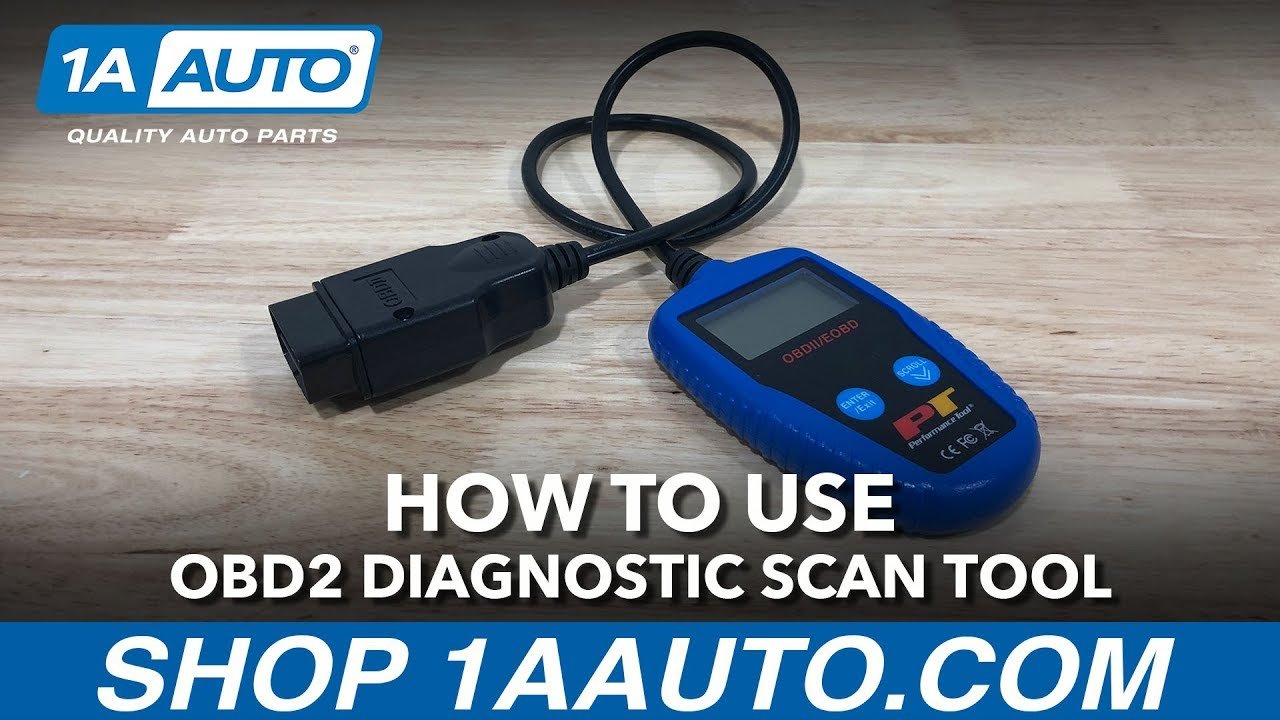Yes, an OBD scanner can tell TPMS sensor status. It reads data from the vehicle’s systems, including tire pressure sensors.
In today’s automotive world, understanding your car’s health is crucial. Tire Pressure Monitoring System (TPMS) sensors play a vital role in this. They monitor tire pressure and ensure safe driving. But can an OBD scanner help with this? The answer is yes. These scanners can read and display TPMS data. One such tool is the BlueDriver Bluetooth Pro OBDII Scan Tool for iPhone & Android. This device connects to your car and provides real-time data, including TPMS sensor status. This blog will explore how an OBD scanner can help you monitor your TPMS sensors effectively.

Credit: www.amazon.com
Introduction To Obd Scanners And Tpms Sensors
An OBD scanner can identify issues with TPMS sensors. It reads data from your car’s systems, including tire pressure. This helps in maintaining vehicle safety.
Understanding Obd Scanners
OBD scanners help check car problems. They plug into a port in the car. These tools read error codes. The codes tell what might be wrong with the car. Many cars have OBD ports. OBD means On-Board Diagnostics. These tools are handy for car owners.
Overview Of Tpms Sensors
TPMS stands for Tire Pressure Monitoring System. It checks tire pressure. It alerts drivers when tire pressure is low. Proper tire pressure is important. It helps with fuel efficiency. It keeps tires lasting longer. It also makes driving safer.
The Importance Of Tpms In Modern Vehicles
TPMS is crucial for safety. Low tire pressure can be dangerous. It can cause accidents. TPMS helps avoid these risks. Many modern cars have TPMS. It is a standard feature now. Keeping tires at the right pressure saves money too.
For more information, check out the BlueDriver Bluetooth Pro OBDII Scan Tool for iPhone & Android.

Credit: thinkcarus.com
Can An Obd Scanner Detect Tpms Sensor Status?
An OBD scanner can read TPMS sensor data. It connects to your car’s OBD-II port. This port provides access to the car’s computer system. OBD scanners like the BlueDriver Bluetooth Pro communicate with TPMS sensors. They retrieve data about tire pressure and sensor status. This helps in monitoring and maintaining optimal tire pressure.
The accuracy of OBD scanners in reading TPMS data varies. Some scanners provide precise readings. Others may not be as reliable. The BlueDriver Bluetooth Pro is known for its high accuracy. It gives detailed information about each tire’s pressure. This ensures you get accurate readings every time.
Different OBD scanners offer varied features and accuracy. Here is a comparison:
| OBD Scanner | Accuracy | Features |
|---|---|---|
| BlueDriver Bluetooth Pro | High | Bluetooth connectivity, Detailed reports |
| Scanner B | Medium | Basic TPMS data, Wired connection |
| Scanner C | Low | Minimal TPMS features, Inconsistent readings |
Choosing the right scanner depends on your needs and budget. The BlueDriver Bluetooth Pro stands out for its reliability and features.
Key Features Of Obd Scanners For Tpms Monitoring
OBD scanners can identify TPMS sensor issues efficiently. They read sensor data to alert you about tire pressure problems. This feature ensures safer driving conditions.
Real-time Tpms Data Display
OBD scanners like the BlueDriver Bluetooth Pro OBDII Scan Tool show real-time data. This means you can see your tire pressure instantly. It helps you know if your tires are safe.
Diagnostic Trouble Codes (dtc) For Tpms
These scanners can read and show TPMS codes. If there’s a problem, you will see a code. It helps you know what needs fixing. This can save time and money.
Advanced Features: Reprogramming And Resetting Tpms
Some OBD scanners can reprogram and reset TPMS sensors. This is useful after changing tires. You can reset sensors yourself. This makes maintenance easier. It also saves you from visiting a mechanic.

Credit: www.ebay.com
Pricing And Affordability Of Obd Scanners With Tpms Capabilities
There are many affordable OBD scanners with TPMS capabilities. These are perfect for car owners on a budget. They provide basic diagnostic functions. You can find these for as low as $20. They are simple to use and often portable. A good choice for beginners or occasional users.
Mid-range OBD scanners offer more features. They are priced between $50 and $100. These tools provide more detailed diagnostics. They are usually more durable and user-friendly. Most mid-range models can read and clear TPMS codes. They are a good balance of price and functionality.
High-end OBD scanners are the most expensive. Prices can go over $200. They offer the best features and capabilities. These scanners provide in-depth diagnostics. They are used by professionals and serious car enthusiasts. High-end models like the BlueDriver Bluetooth Pro OBDII Scan Tool are worth the investment for their reliability and advanced features.
Pros And Cons Of Using Obd Scanners For Tpms Status
OBD scanners offer great convenience. They are easy to use. No need for a mechanic. Just plug it in. Check your TPMS status quickly. These tools are cost-effective. Save money on diagnostics. No need for expensive visits.
OBD scanners can have limitations. Not all models read TPMS. Some may not be accurate. They might miss issues. Important to verify with a mechanic. They are good for basic checks. Complex issues need experts.
Users like the BlueDriver Bluetooth Pro OBDII Scan Tool. They find it handy. Works well with iPhone and Android. Easy to use. Positive feedback on Amazon. Some users face connectivity issues. Overall, it is reliable.
Check on AmazonWho Should Use Obd Scanners For Tpms Monitoring?
DIY enthusiasts love using OBD scanners like the BlueDriver Bluetooth Pro OBDII Scan Tool for iPhone & Android. They enjoy checking car issues themselves. Professionals in the automotive field find these tools valuable too. They save time and quickly identify problems. Both groups benefit from accurate and fast diagnostics. This tool enhances their work and hobby.
OBD scanners excel in many scenarios. They read error codes and clear them. They provide real-time data. This helps in diagnosing issues on the spot. They can also check engine light problems. OBD scanners are useful in regular car maintenance. They ensure the vehicle runs smoothly. They offer quick and simple solutions for common car issues.
In some cases, professional TPMS tools are better. They offer more detailed diagnostics. They handle complex TPMS problems. They are ideal for deep analysis. Professionals use them for comprehensive vehicle checks. These tools provide advanced features. They might be necessary for specific tasks. For instance, resetting or programming TPMS sensors. They are essential for professional-grade work.
Frequently Asked Questions
Can An Obd Scanner Detect Tpms Sensor Issues?
Yes, some OBD scanners can detect TPMS sensor issues. Check the scanner’s features.
How Do You Know If Your Tpms Sensor Is Bad?
A warning light on the dashboard usually indicates a bad TPMS sensor.
Do All Obd Scanners Work With Tpms Sensors?
No, not all OBD scanners work with TPMS sensors. Verify compatibility before purchase.
Conclusion
Understanding whether an OBD scanner can read TPMS sensors is crucial. It helps ensure tire pressure safety. The BlueDriver Bluetooth Pro OBDII Scan Tool is a great choice. It supports both iPhone and Android devices. For more details, check out BlueDriver Bluetooth Pro OBDII Scan Tool. This tool simplifies vehicle diagnostics, including TPMS sensors. Invest in it for a reliable automotive diagnostic experience. Stay safe and informed on the road.



